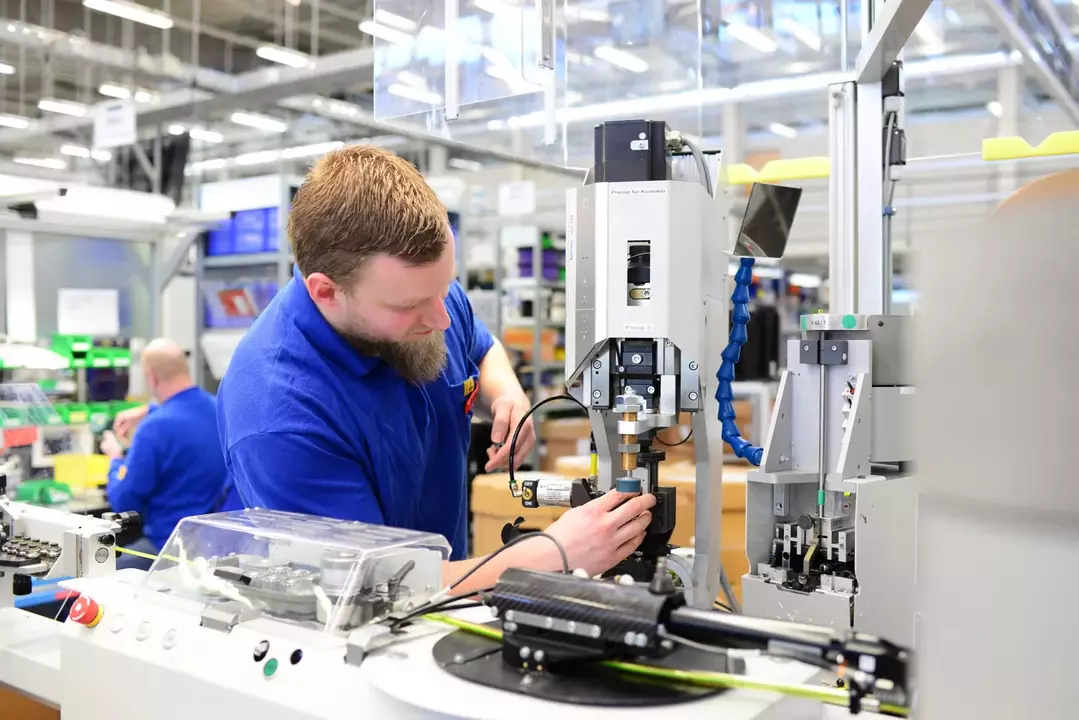Understanding the Role of Engineers
In today's world, the term "engineer" is often thrown around and used to describe those who design and manufacture various products. But do engineers truly manufacture things? In this article, we'll delve into the roles of engineers and explore whether they can be considered manufacturers. We'll also discuss the various fields of engineering and examine their contributions to modern society.
Defining Engineering and Manufacturing
Before we can answer the question of whether engineers manufacture things, we need to understand the definitions of engineering and manufacturing. Engineering is the application of scientific and mathematical principles to design, build, and maintain structures, machines, and systems. On the other hand, manufacturing is the process of producing goods through the use of tools, machinery, and labor.
While the two fields may overlap in some areas, they are fundamentally different. Engineers focus on creating and optimizing designs, while manufacturers focus on producing the final product. However, engineers do play an essential role in developing the technologies and methods used in manufacturing.
The Different Types of Engineers
Engineering is a broad field with many sub-disciplines, each with its unique focus and responsibilities. Some of the most common types of engineers include:
- Mechanical engineers, who work on the design and development of machines, engines, and other mechanical systems;
- Electrical engineers, who design and develop electrical systems and components, such as circuits and power systems;
- Civil engineers, who design and oversee the construction of infrastructure projects, like bridges, roads, and buildings;
- Chemical engineers, who apply principles of chemistry to develop processes and products, such as pharmaceuticals and food products;
- Software engineers, who create and maintain computer programs and applications.
While engineers in each of these fields may not directly manufacture products, their work is essential in creating the designs and technologies needed for manufacturing.
Engineers in the Design Process
One of the primary roles of engineers is to design products, systems, or processes. This involves using their knowledge of scientific and mathematical principles to create efficient, safe, and functional designs. Engineers work closely with clients or stakeholders to understand their needs, identify constraints, and develop a design that meets those requirements. They also use computer-aided design (CAD) software to create detailed plans and specifications that will be used by manufacturers to produce the final product.
Throughout the design process, engineers collaborate with other professionals, such as architects, industrial designers, and technicians, to ensure that their design is feasible and cost-effective. They may also conduct tests and simulations to validate their design, identify potential issues, and make any necessary adjustments.
Engineers and Manufacturing Technologies
While engineers may not directly manufacture products, they play a vital role in developing the technologies and methods used in manufacturing. For example, mechanical engineers may design and develop machines and equipment used in production lines, while electrical engineers may create the control systems and automation technologies that enable efficient manufacturing processes.
Engineers also work to develop new materials and manufacturing techniques that can improve product quality, reduce production costs, and minimize environmental impact. These innovations often lead to advancements in manufacturing capabilities and have a significant impact on various industries.
Quality Assurance and Testing
Another crucial aspect of engineering is ensuring the quality and safety of products and systems. Engineers are responsible for conducting rigorous tests and inspections to ensure that their designs meet the required standards and specifications. This may involve performing simulations, analyzing data, and conducting physical tests to assess a product's performance, durability, and safety.
Engineers also work closely with manufacturers to ensure that their designs are being produced correctly and to troubleshoot any issues that may arise during the manufacturing process. This collaboration helps to maintain a high level of quality and minimize the potential for defects or failures in the final product.
Engineering and Sustainability
In today's world, engineers are increasingly focused on designing products and systems that are environmentally friendly and sustainable. This involves considering factors such as energy efficiency, material usage, and waste reduction throughout the design process. Engineers may also work to develop and implement renewable energy sources, such as solar or wind power, to reduce the environmental impact of manufacturing processes.
Some engineers specialize in environmental engineering, a field that focuses on developing solutions to environmental problems, such as pollution and waste management. These engineers work to create sustainable technologies and practices that can help industries minimize their environmental footprint and contribute to a cleaner, greener future.
Educational Requirements for Engineers
Becoming an engineer typically requires a strong foundation in mathematics, science, and problem-solving skills. Most engineering positions require a bachelor's degree in engineering or a related field, although some advanced roles may require a master's or doctoral degree. Additionally, engineers often need to obtain professional licensure, which involves passing an exam and meeting other requirements set by their state or country.
Engineers must also engage in continuing education to stay up-to-date with the latest technologies, methodologies, and industry trends. This commitment to lifelong learning helps engineers remain at the forefront of their field and ensures that they can continue to contribute to advancements in engineering and manufacturing.
Conclusion: Do Engineers Manufacture Things?
While engineers may not directly manufacture products, their work is essential in designing, developing, and optimizing the technologies and methods used in manufacturing. Engineers play a significant role in creating innovative solutions and ensuring the quality and safety of products and systems. They contribute to the advancement of manufacturing capabilities and help to create a more sustainable, efficient, and technologically advanced world.

